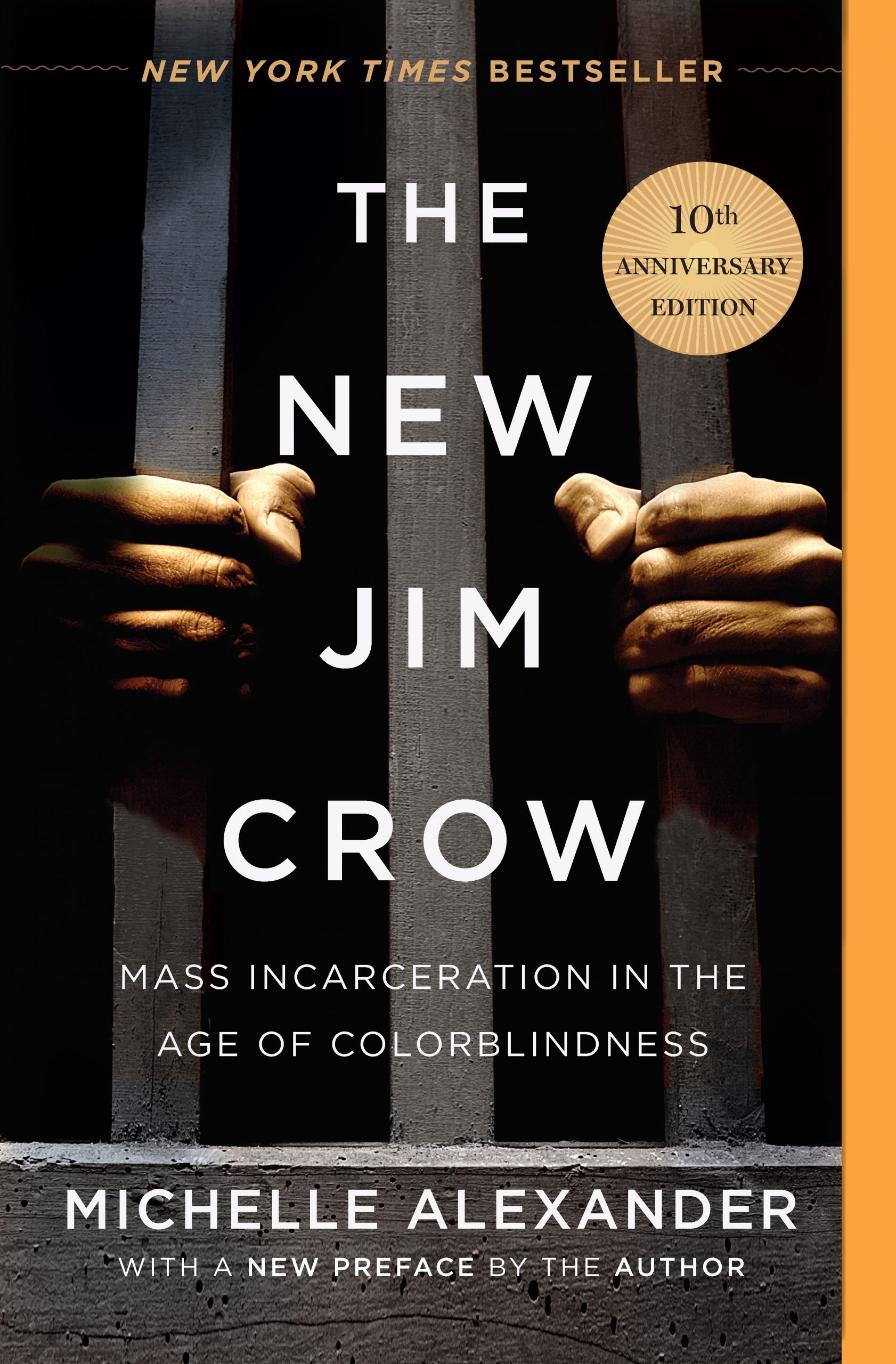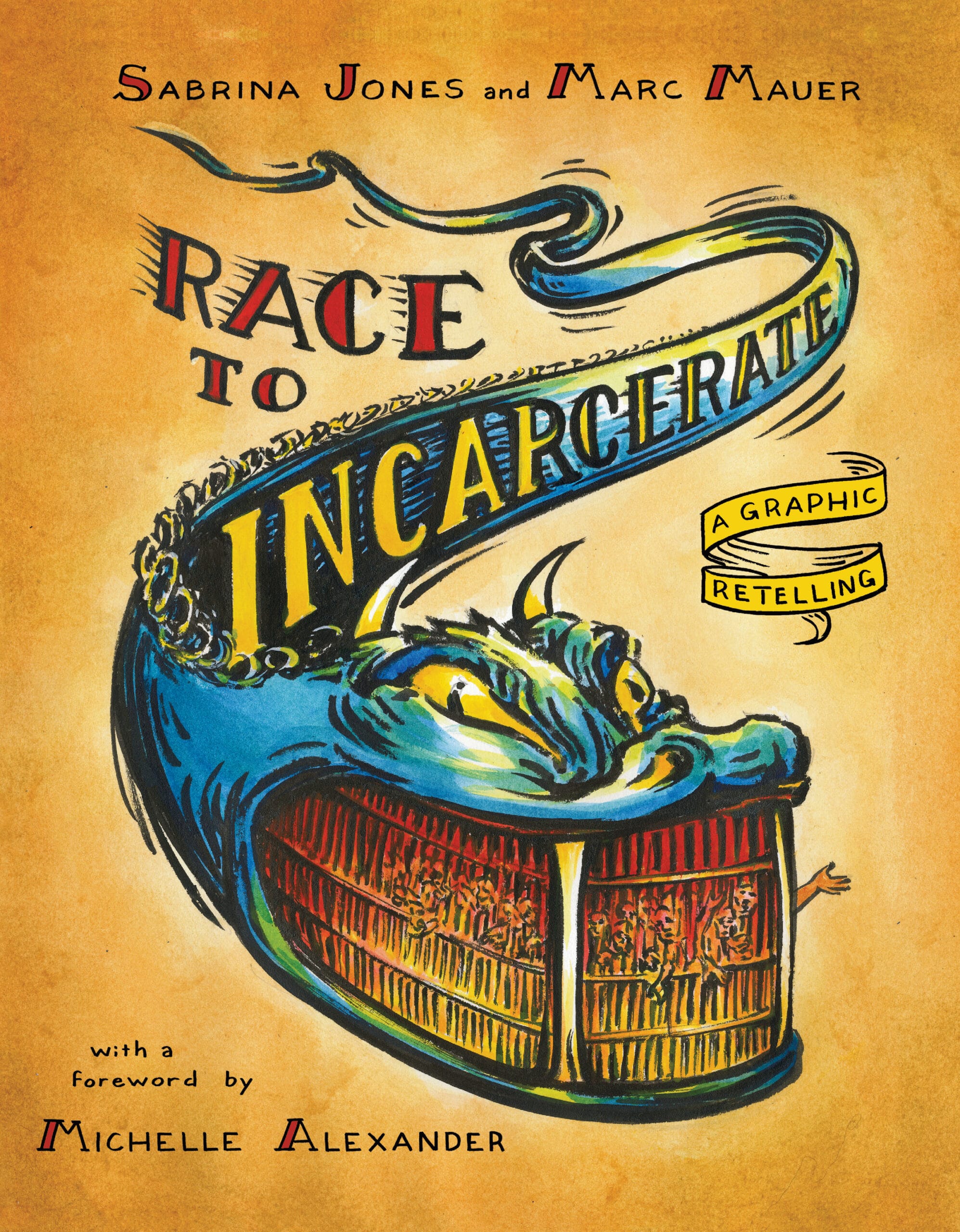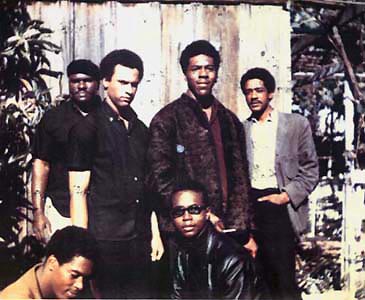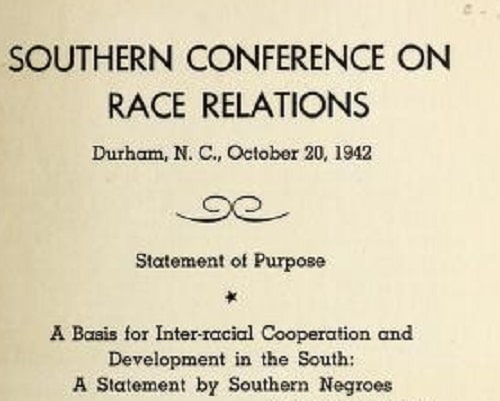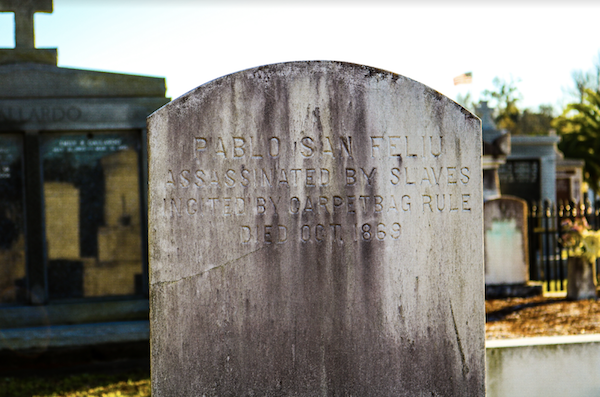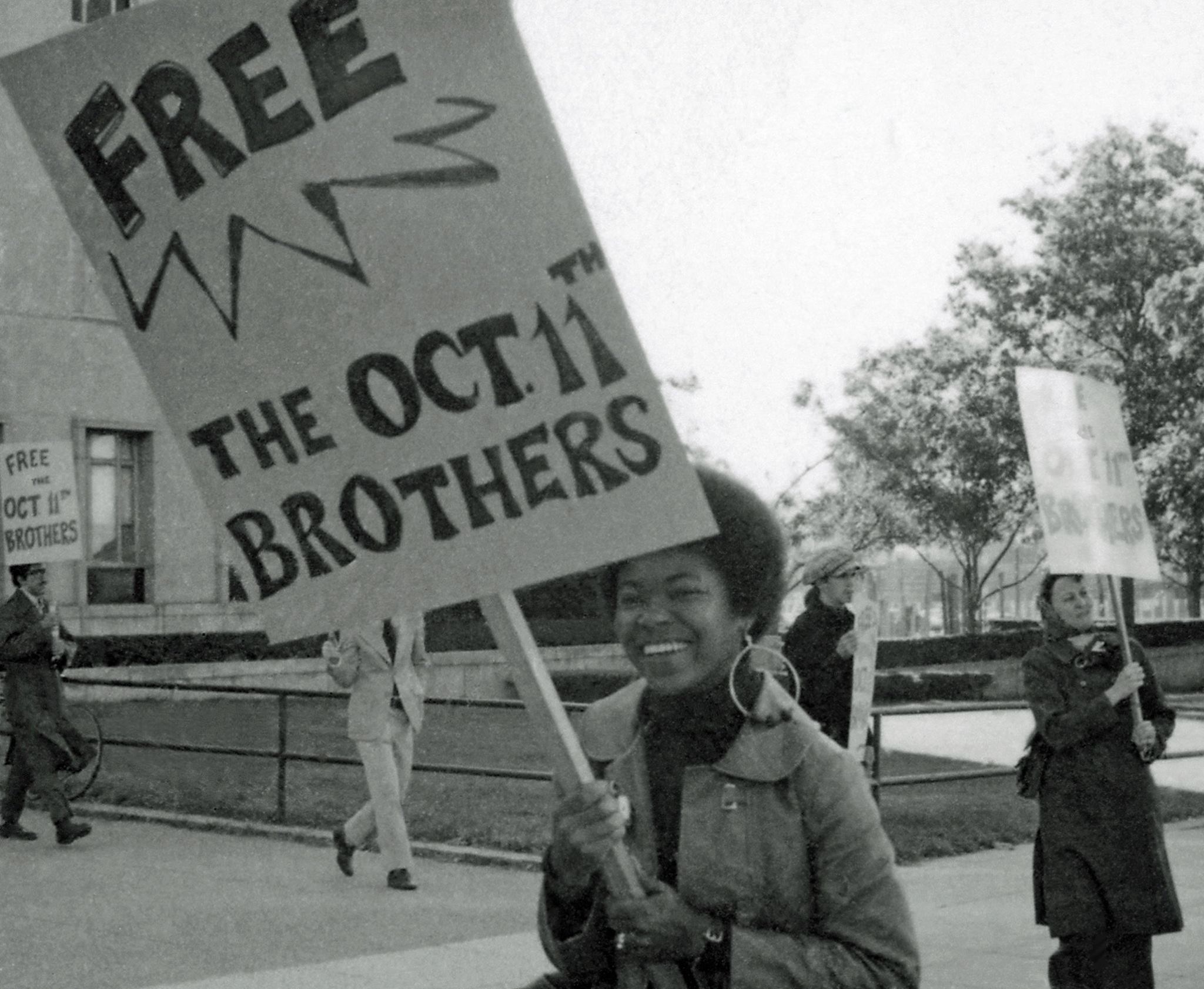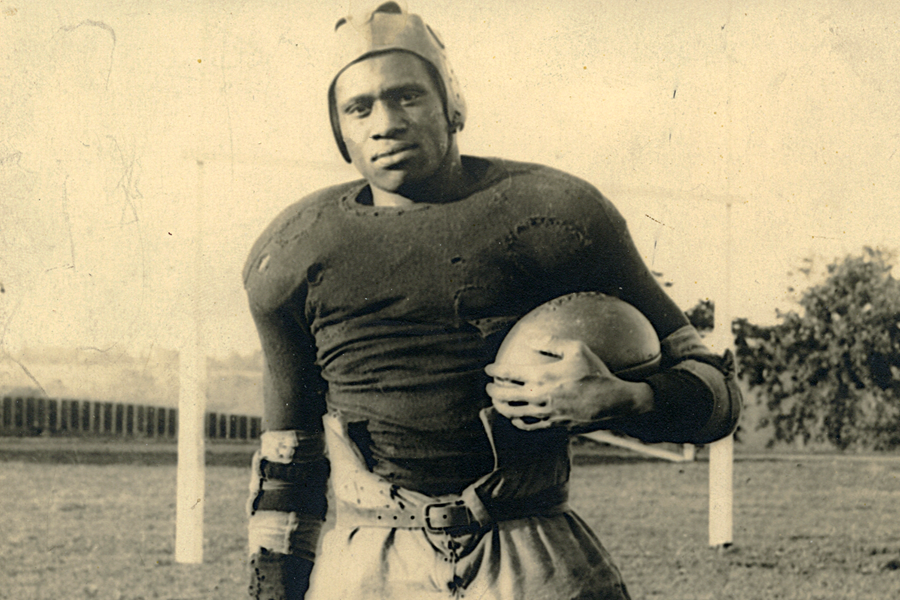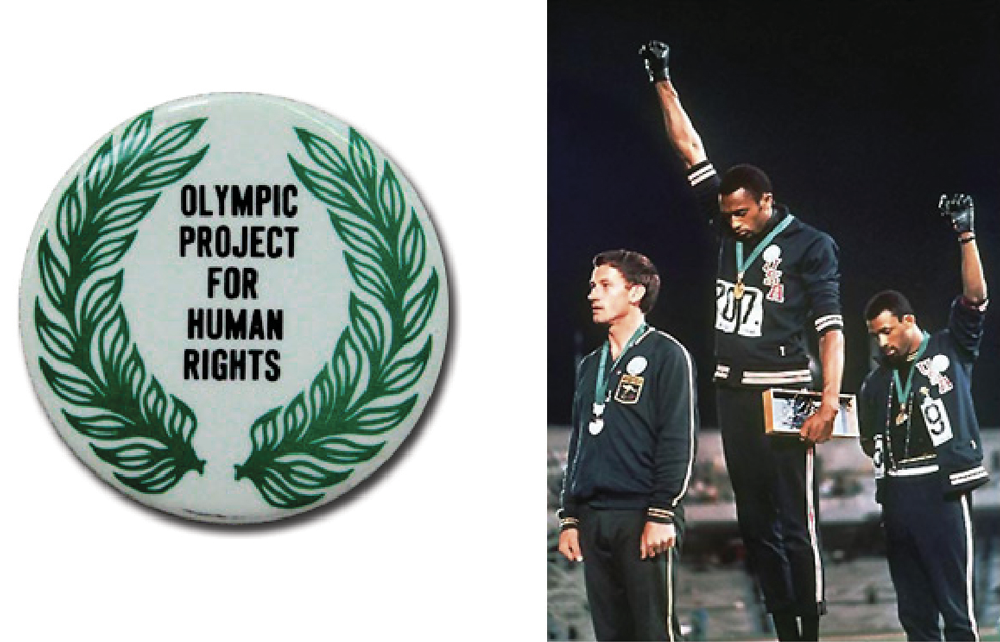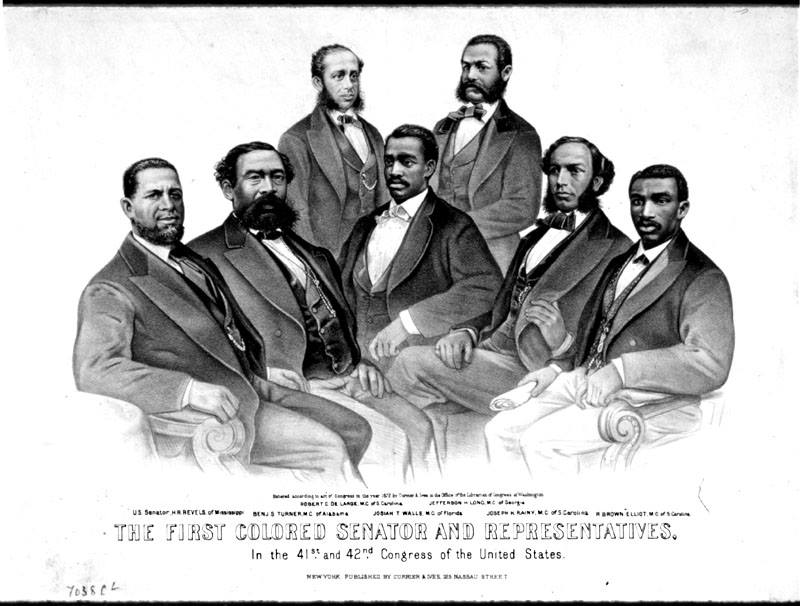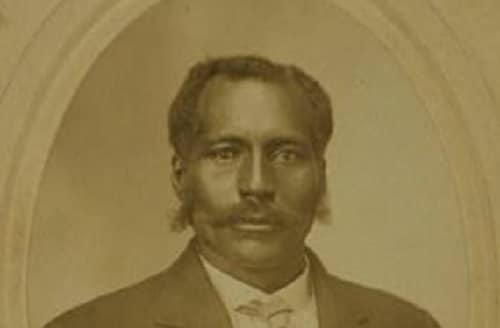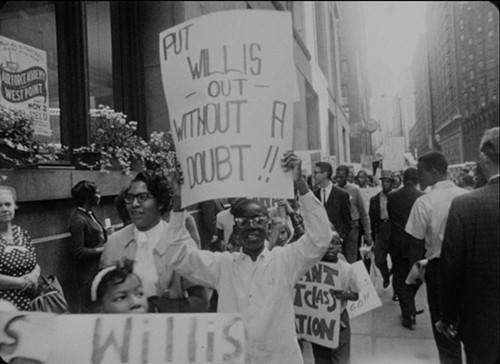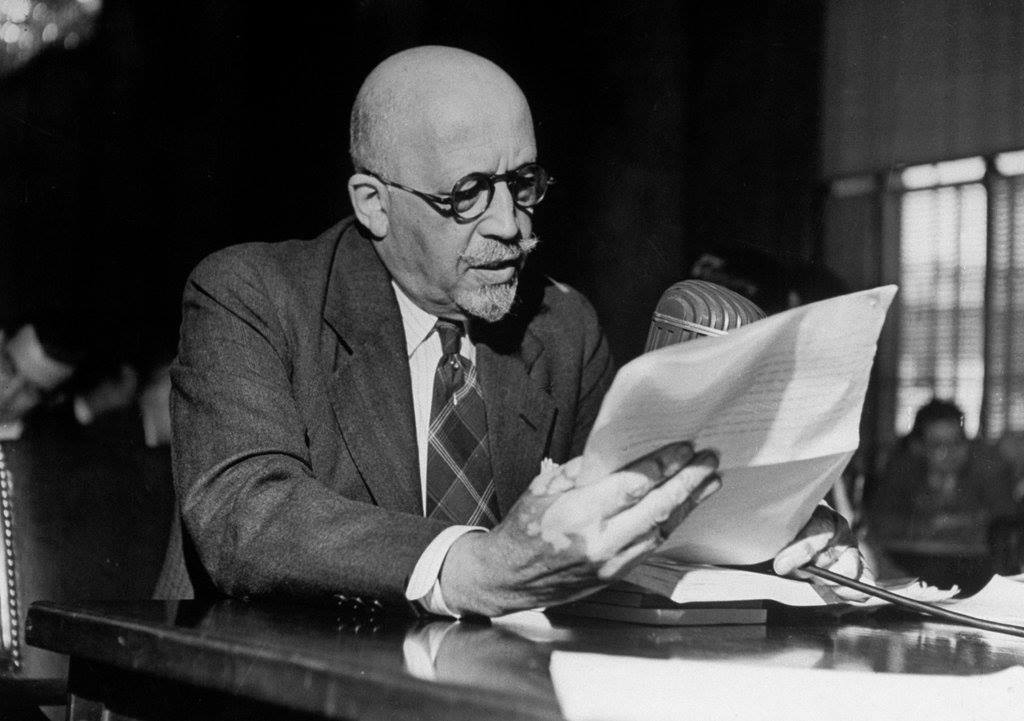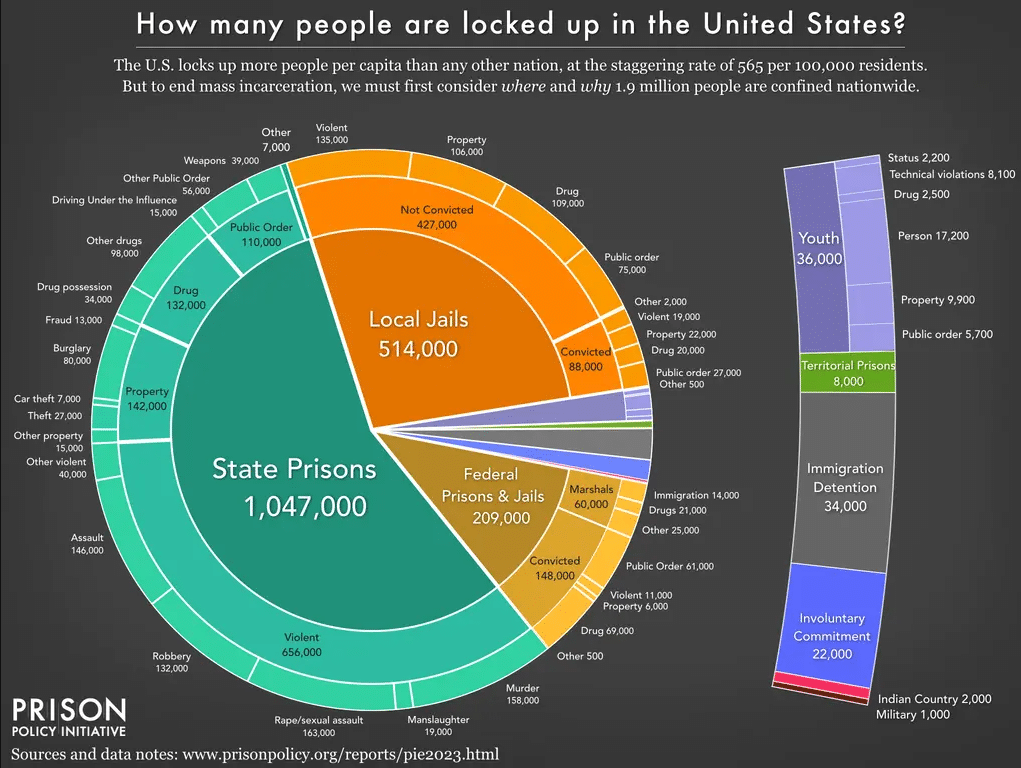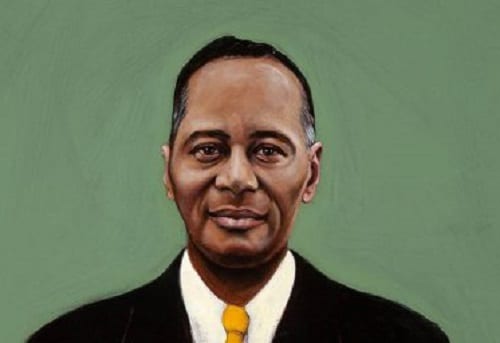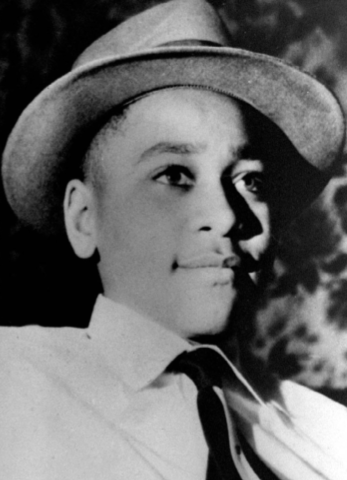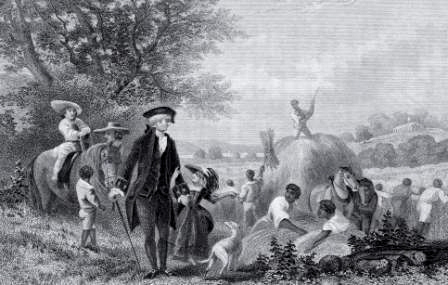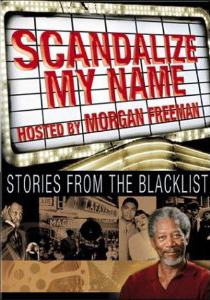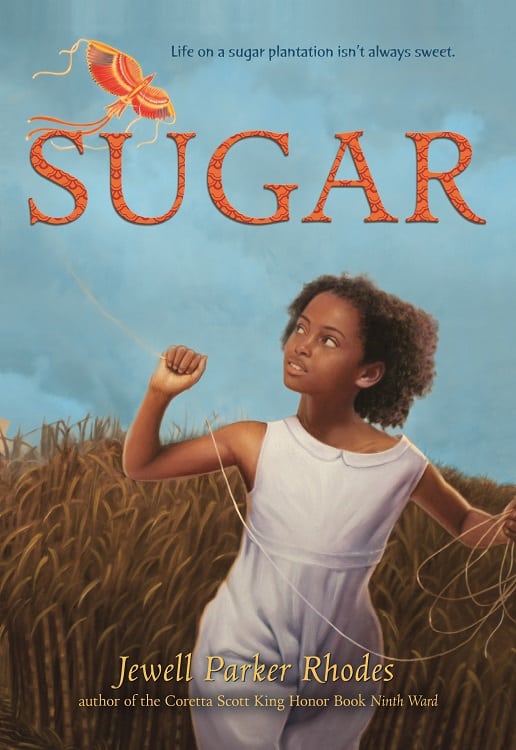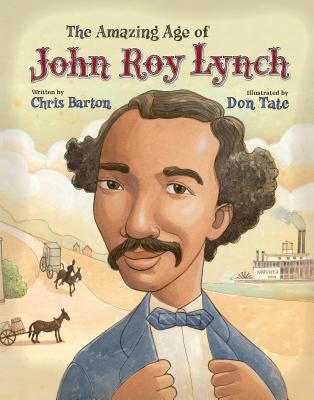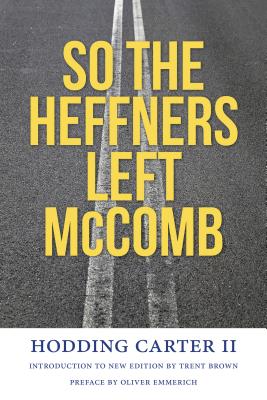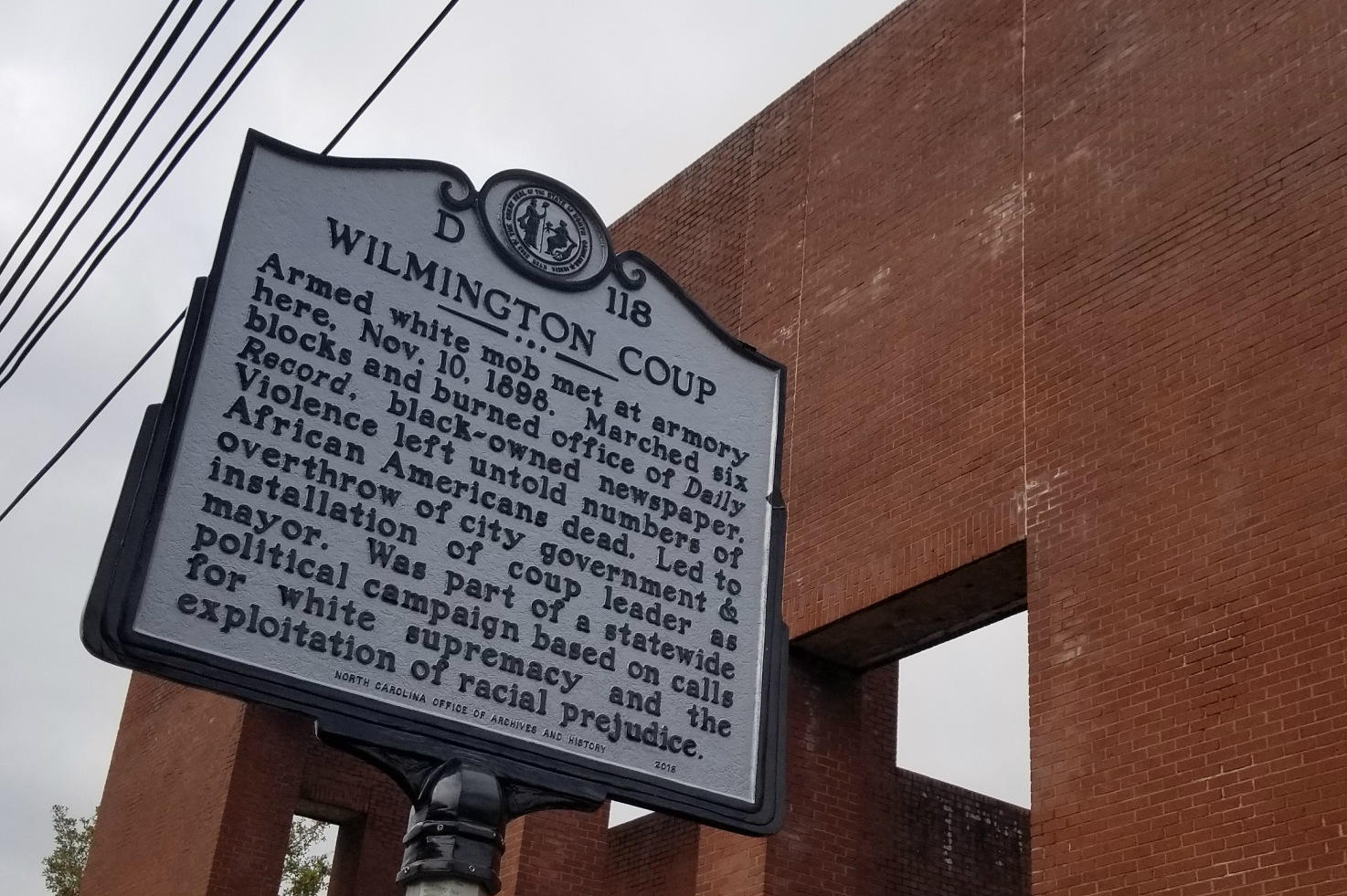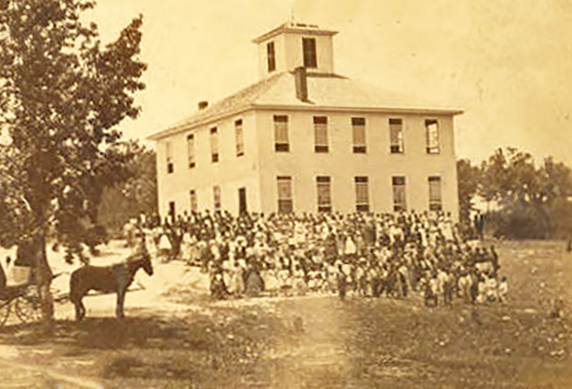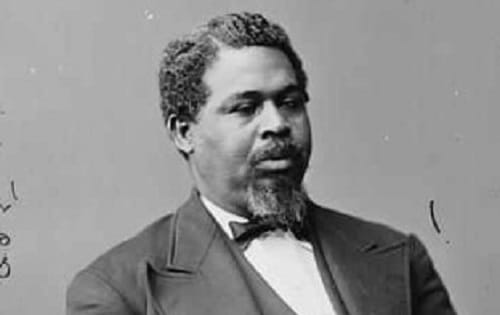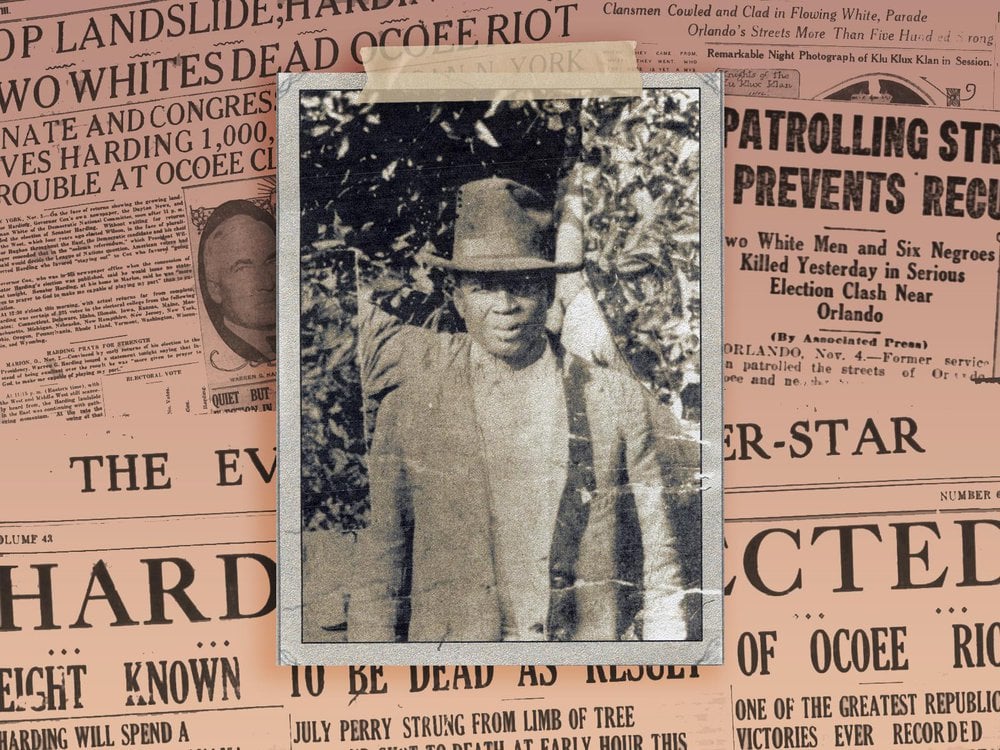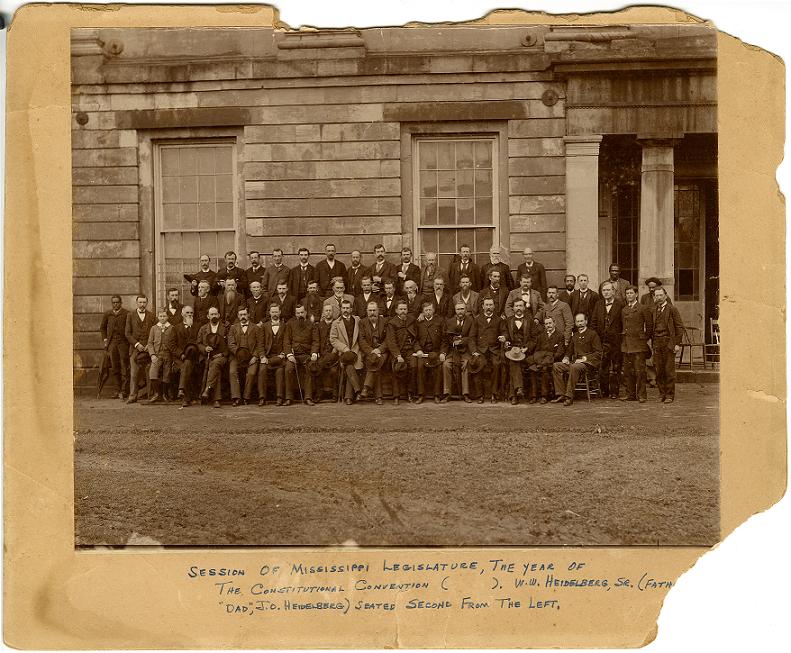Book — Non-fiction. By Michelle Alexander. Introduction by Cornel West. 2010, updated 10th-anniversary edition released in 2020. 336 pages.
A critical analysis of the role the justice system plays in the oppression of African Americans in the United States.
Continue reading
Book — Non-fiction. By Marc Mauer and Sabrina Jones. 2013. 128 pages.
Based on the popular book Race to Incarcerate, this graphic adaptation is a key resource to introduce a study of U.S. prison system to middle school readers and above.
Continue reading
The Black Panther Party sought justice for African Americans and other oppressed communities through a combination of revolutionary theory, education, and community programs.
Continue reading
The Southern Conference on Race Relations (SCRR) was held in Durham, North Carolina to address dichotomy between African American soldiers fighting overseas in the name of democracy while in the U.S. they were facing racial violence and being denied basic human rights.
Continue reading
The St. Bernard Parish massacre of African Americans was carried out by white men to terrorize the recently emancipated voters in Louisiana.
Continue reading
An uprising took place at a Washington, D.C. jail to protest conditions.
Continue reading
As a sophomore, Paul Robeson was excluded from the Rutgers Football team because another team refused to play against a Black player.
Continue reading
Tommie Smith and John Carlos made a symbolic protest while the U.S. national anthem was played in the Olympics.
Continue reading
For the first time, African Americans were elected to the House of Representatives in 1870.
Continue reading
Successful African American entrepreneur, landowner, and community leader Anthony P. Crawford was murdered by a lynch mob in South Carolina.
Continue reading
The Chicago Public School Boycott, also known as Freedom Day, was a mass boycott and demonstration against the segregationist policies.
Continue reading
The NAACP sent to the U.N. a document titled “An Appeal to the World,” to redress human rights violations the United States committed against its African-American citizens.
Continue reading
The U.S. Justice Department announced that the prison population topped one million for the first time in U.S. history.
Continue reading
The Supreme Court ruled that schools in the U.S. had to desegregate “immediately,” instead of the previous ruling of “with all deliberate speed.”
Continue reading
Teaching Activity. By Doug Sherman. Rethinking Schools. 4 pages.
The author describes how he uses biographies and film to introduce students to the role of people involved in the Civil Rights Movement beyond the familiar heroes. He emphasizes the role and experiences of young people in the Movement.
Continue reading
Teaching Activity. By Bob Peterson. Rethinking Schools. 7 pages.
How a 5th grade teacher and his students conducted research to answer the question: “Which presidents owned people?” Available in Spanish.
Continue reading
Film. Directed by Alexandra Isles. 2000. 60 minutes.
Documentary about the impact of the McCarthy era on African Americans in the film industry.
Continue reading
Book — Fiction. By Jewell Parker Rhodes. 2013. 288 pages.
Historical fiction about Reconstruction-era Louisiana through the eyes of a young girl who bridges the divide between the long-time plantation workers and the Chinese indentured servants.
Continue reading
Picture book. By Chris Barton. Illustrated by Don Tate. 2015. 50 pages.
An in-depth look at the Reconstruction period through the life of one of the first African-American congressmen.
Continue reading
Book — Non-fiction. By Hodding Carter II. Reprinted 2016. 176 pages.
Profile of a white family persecuted for being hospitable to civil rights workers.
Continue reading
The elected and interracial Reconstruction era local government was deposed in a coup d’etat in Wilmington, North Carolina.
Continue reading
Delegates gathered in Montgomery, Alabama, to draft a new state constitution during Reconstruction.
Continue reading
Robert Smalls was elected to Congress from South Carolina during Reconstruction.
Continue reading
More than fifty African Americans killed in the Ocoee Massacre after going to vote in Florida.
Continue reading
Mississippi adopted a state constitution with poll tax and literacy tests to roll back the gains of the Reconstruction era.
Continue reading

